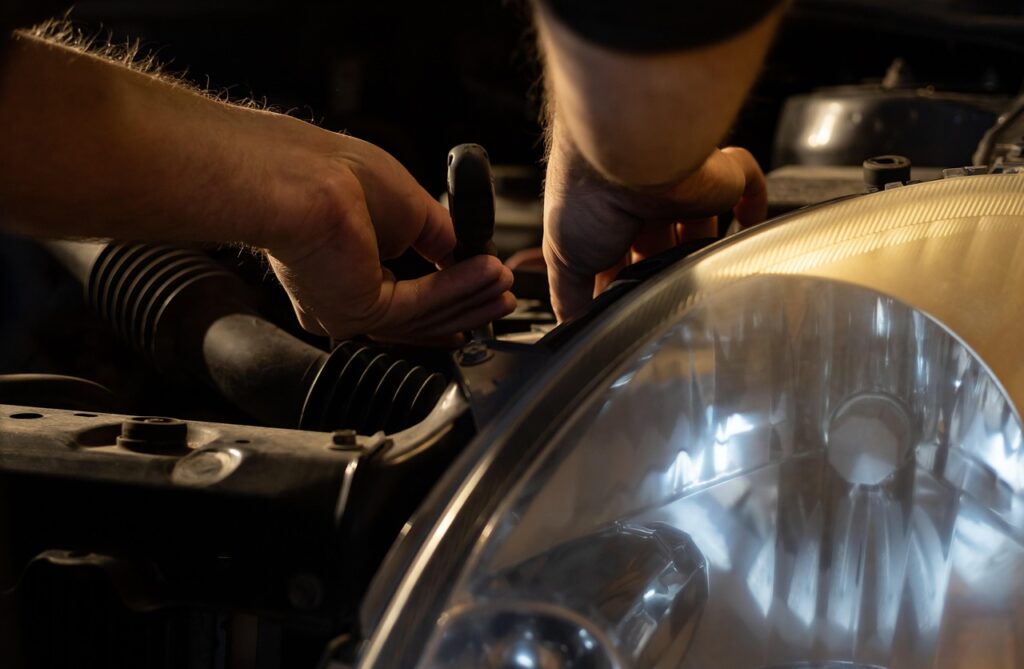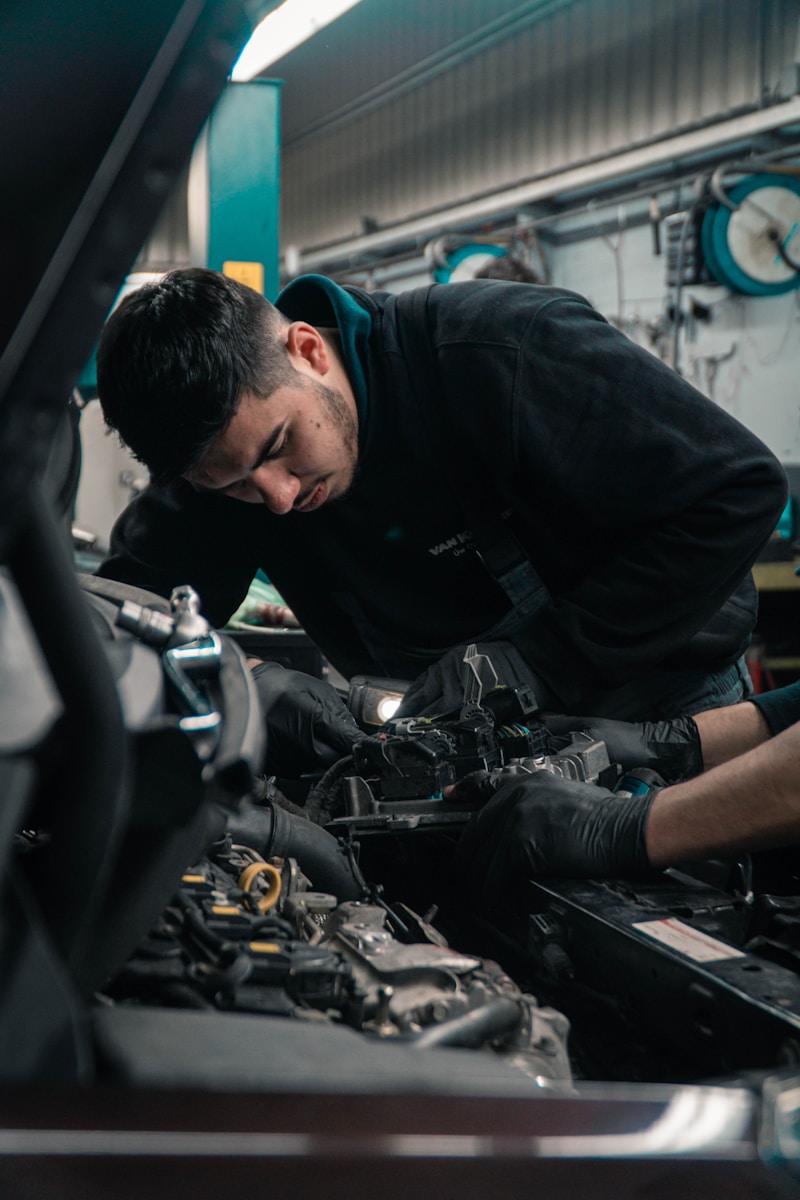
Navigating the world of auto repair can often feel like venturing into uncharted territory, filled with jargon, unexpected costs, and a lingering uncertainty about whether you’re truly getting the best service. For many vehicle owners, the search for a trustworthy mechanic is paramount, a professional who treats their ride with the same care and respect they would themselves. However, the reality is that while numerous reputable establishments offer skilled, honest, and courteous service, a segment of the industry can unfortunately turn what should be a straightforward repair into a frustrating, costly, and even damaging ordeal.
Empowering yourself with knowledge is the best defense against such negative experiences. Recognizing the warning signs that indicate a shop might not have your best interests at heart is crucial for making informed decisions and protecting your investment. This guide, drawing on expert insights and common consumer pitfalls, is designed to arm you with the actionable advice needed to identify problematic repair shops and steer clear of potential headaches.
We delve into critical red flags, from aggressive sales pitches to a distinct lack of transparency, providing a comprehensive overview that will help you distinguish between a reliable partner for your vehicle’s maintenance and a place you should absolutely walk away from. Understanding these indicators can save you not only money and time but also the significant stress associated with poor-quality work and dishonest practices. Let’s explore the initial set of crucial warning signs that every vehicle owner should be aware of.

1. **Pushy Sales Tactics**One of the most immediate and unsettling warning signs consumers might encounter at an auto repair shop is the presence of overtly pushy sales tactics. This behavior often suggests that the shop’s priority leans heavily towards maximizing profit rather than genuinely addressing the customer’s needs and concerns. It’s a clear indicator that you might be dealing with a business model that prioritizes the bottom line above all else, rather than the integrity of service.
Consumers should be particularly vigilant for signs such as an insistence that you must make a decision immediately regarding proposed repairs. This sense of urgency is frequently manufactured to prevent you from seeking a second opinion, researching the recommended service, or simply taking the time to consider your options. It’s a pressure tactic designed to rush you into an agreement before you’ve had a chance to fully process the information presented.
Furthermore, watch out for scare tactics, which involve exaggerated claims of imminent danger if certain repairs are not undertaken immediately. These alarming pronouncements are often designed to instill fear and panic, compelling you to approve unnecessary or prematurely recommended services. A trustworthy shop will present facts and clear explanations, allowing you to make a decision based on understanding, not alarm.
Another significant red flag within pushy sales tactics is the pushing of additional services without clear justification. This might manifest as a mechanic suggesting an array of extra repairs or maintenance tasks that were not part of your initial request and for which no clear, understandable reason has been provided. A reputable shop will offer recommendations, certainly, but these will always be accompanied by a transparent explanation of their necessity and how they relate to your vehicle’s condition or safety.
Ultimately, a trustworthy auto repair shop will always prioritize your safety and respect your budget. They will provide clear, well-reasoned recommendations without ever making you feel cornered or obligated to make an immediate decision. The absence of high-pressure sales is a hallmark of a customer-focused establishment, demonstrating that their commitment is to quality service and long-term customer relationships, not just immediate sales.
Read more about: Your Ultimate Guide: 14 Critical Car Rental Mistakes Abroad (And How to Dodge Them!)
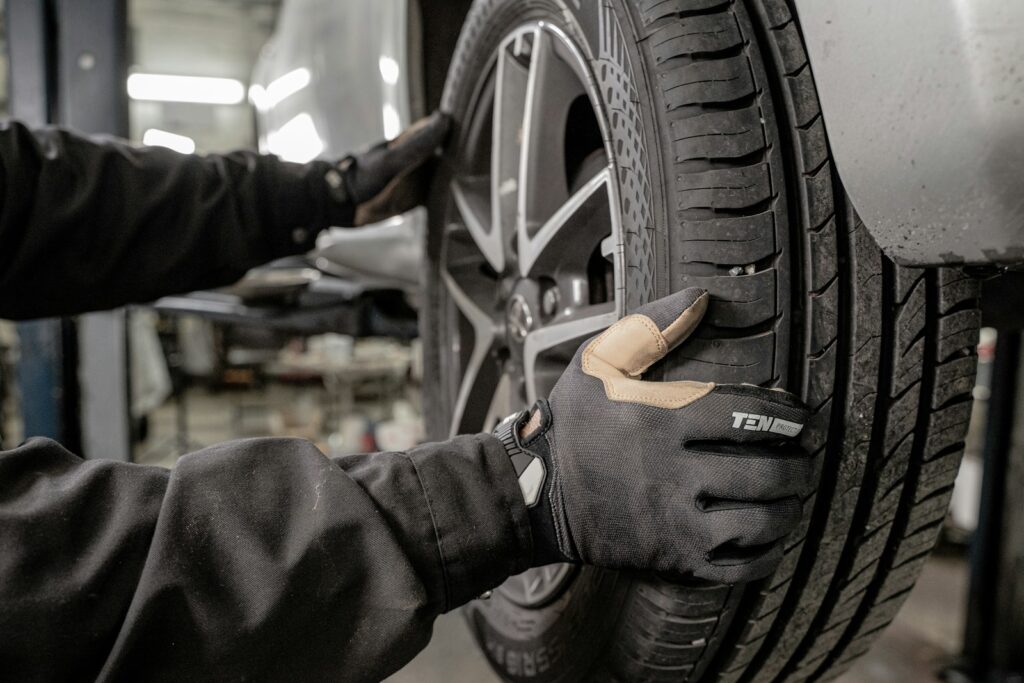
2. **Unqualified or Uncertified Technicians**Your vehicle represents a significant investment, and it deserves to be in the hands of skilled, knowledgeable professionals. Therefore, a critical warning sign that should prompt immediate caution is the presence of unqualified or uncertified technicians. Reputable shops understand the importance of expertise and typically invest in hiring individuals with proper training and industry certifications, ensuring that the work performed meets established standards.
Be particularly cautious if an auto repair shop lacks recognized certifications such as those from ASE (Automotive Service Excellence) or specific manufacturer certifications. These credentials are not mere formalities; they are indicators that technicians have met rigorous testing standards and possess a verified level of competency in various aspects of automotive repair. Their absence can suggest a lack of commitment to professional development and quality service.
Another telling sign is if the shop is unable or unwilling to provide proof of its technicians’ qualifications when asked. This lack of transparency can raise serious questions about the caliber of the individuals working on your vehicle. Qualified professionals are typically proud of their achievements and certifications, and a reputable shop will readily share this information to instill confidence in their customers.
Furthermore, if you frequently encounter complaints about poor-quality work associated with a particular shop, this directly points to potential issues with technician qualifications. Recurrent problems after a repair, or the need for subsequent fixes for the same issue, often stem from a lack of proper diagnostic skills or inadequate repair techniques. This can lead to ongoing frustration and additional expenses for the consumer.
Qualified technicians are essential not only for the immediate quality of the repair but also for your long-term financial well-being. They possess the expertise to diagnose issues correctly and perform repairs accurately the first time, thereby saving you money by preventing repeated visits or the need to fix errors made by less competent individuals. Insisting on certified professionals is a wise choice for any vehicle owner.

3. **Poor Communication**Effective and clear communication is the bedrock of any successful service relationship, especially in the nuanced field of auto repair. When a shop exhibits poor communication practices, it signals a fundamental disregard for the customer’s understanding and peace of mind. This lack of transparency can lead to confusion, frustration, and ultimately, a breakdown of trust, making it a significant red flag.
One of the most immediate signs of poor communication is a shop that ignores your questions or concerns. When you ask for clarification on a repair, request an explanation of a diagnostic finding, or express worries about potential costs, you deserve a thoughtful and comprehensive response. Being brushed off or given vague answers indicates that the shop may not value your input or your right to be fully informed about the service being performed on your vehicle.
Equally problematic is a failure to explain the problem in terms that you, the customer, can understand. Mechanics should be able to translate technical jargon into plain language, ensuring that you comprehend the nature of the issue, the proposed solution, and why it is necessary. If a shop consistently uses overly technical terms without adequate explanation, it can leave you feeling confused and disempowered, unable to make an educated decision.
Moreover, a reputable shop will proactively update you about any delays or additional repairs that become necessary. Unforeseen complications can arise, but a lack of communication regarding these changes—leaving you in the dark about when your car will be ready or what new costs you might incur—is unacceptable. You should be informed promptly of any deviations from the original plan or timeline.
You deserve a shop that treats you like a partner in the repair process, not an inconvenience. Open and respectful dialogue fosters a sense of collaboration and ensures that you are fully aware of every step being taken with your vehicle. Shops that communicate effectively demonstrate professionalism and a genuine commitment to customer satisfaction, making them a much more reliable choice for your auto care needs.
Read more about: Mastering ‘Worse’ vs. ‘Worst’: Your Essential Guide to Navigating Tricky Comparisons in Customer Service Evaluations
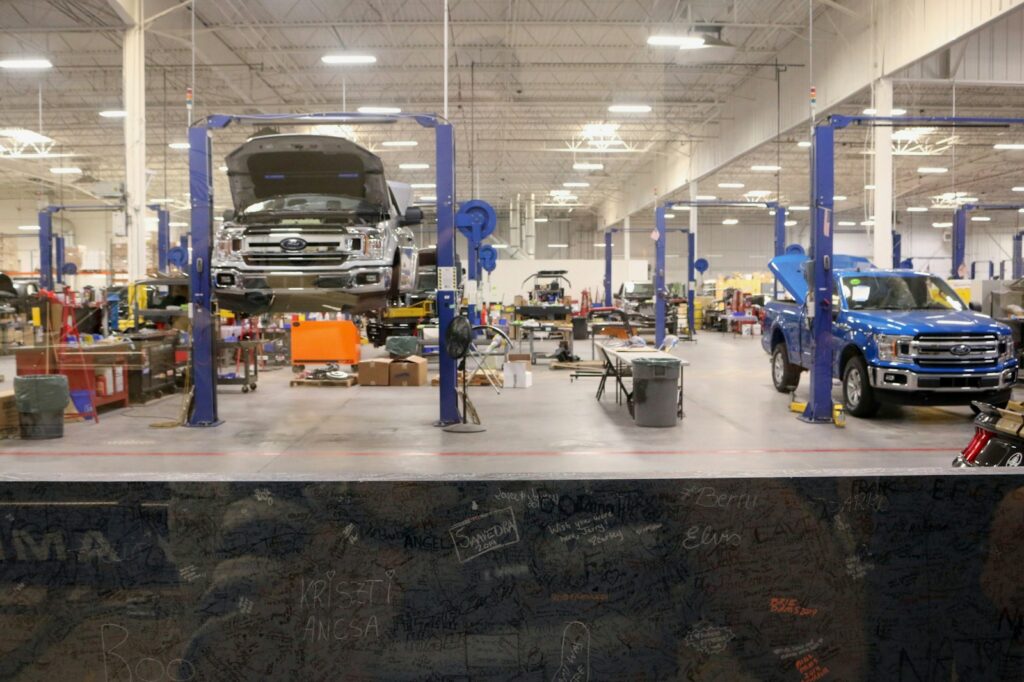
4. **Lack of a Clean and Organized Facility**While it’s true that an auto repair shop isn’t expected to possess the pristine appearance of a showroom, a fundamental lack of cleanliness and organization within its facility can serve as a potent warning sign. The state of a workspace often directly reflects the professionalism and attention to detail that a business applies to its core operations, including the care it takes with your vehicle. A messy environment can be indicative of broader issues within the shop’s management and work ethic.
Be particularly wary if you notice cluttered or unsafe working conditions within the garage area. Tools strewn haphazardly, oil spills left unaddressed, or parts lying around in a disorganized fashion can not only create a dangerous environment for employees but also suggest a lack of systematic processes and careful handling of vehicle components. This disarray can directly translate into sloppy work or even lost parts when it comes to your vehicle.
Furthermore, disorganized office areas, where paperwork is piled high, records seem to be in disarray, or the general administrative space appears neglected, can be another subtle but important indicator. This suggests that the shop might not maintain accurate records of your vehicle’s service history or handle invoicing with the necessary precision. Such administrative disarray can lead to errors in billing or a lack of documentation should a dispute arise.
A general lack of care for their environment extends beyond just tidiness; it reflects a broader attitude towards quality and customer service. A shop that takes pride in its physical space is more likely to take pride in the work it performs. This commitment to maintaining an orderly and clean environment signals a dedication to operational excellence and a respect for both their trade and their clientele.
Conversely, a well-kept shop often speaks volumes about its commitment to quality. An organized workspace allows technicians to operate more efficiently and safely, reducing the chances of errors and demonstrating a meticulous approach to their craft. Choosing a shop that shows pride in its surroundings often means choosing a business that will apply the same level of care and attention to your vehicle.
Read more about: Your Ultimate Checklist: 15 Essential Questions for a Smooth Family RV Trip Rental
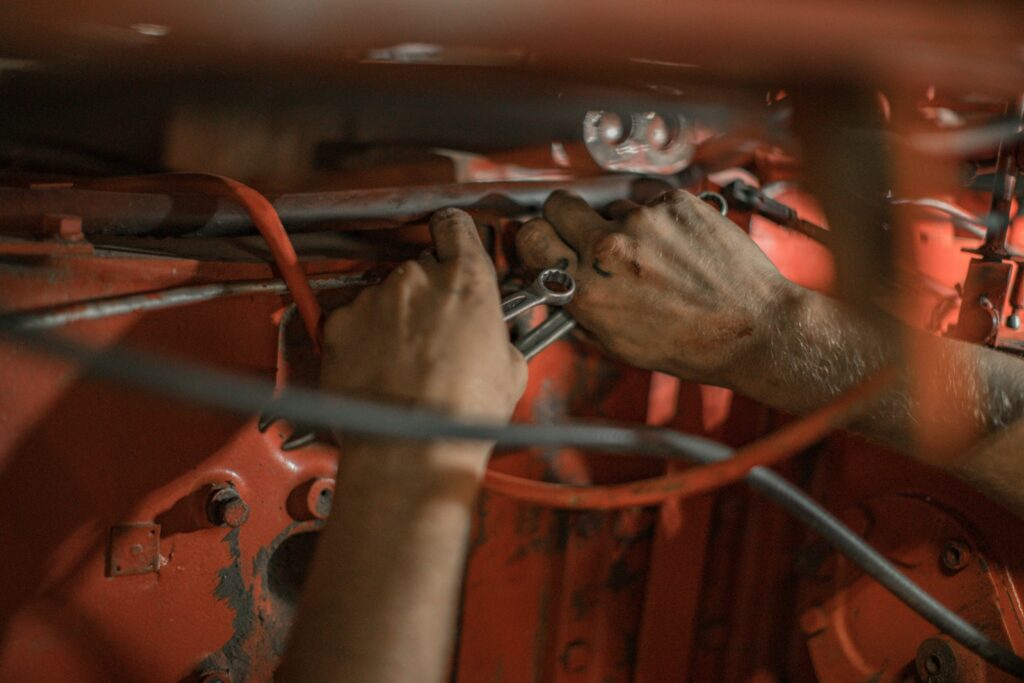
5. **No Guarantees or Warranties**One of the most reassuring aspects of any professional service is the promise that the work performed will meet certain standards and that the provider stands behind their craftsmanship. In the realm of auto repair, this assurance typically comes in the form of guarantees or warranties on parts and labor. The absence of such assurances from a repair shop should be considered a significant red flag, signaling a potential lack of confidence in the quality of their services.
Reputable auto repair shops consistently stand by their work, offering clear warranty terms that protect consumers should an issue arise shortly after a repair. These warranties provide a safety net, ensuring that if a part fails prematurely or the repair itself is faulty, the customer will not bear the cost of fixing the problem again. This commitment reflects a belief in the durability of the parts used and the competence of their technicians.
If a shop is hesitant to offer any form of guarantee or warranty on the services they provide, it directly raises questions about their self-assessment of quality. Such reluctance might stem from a history of recurring problems with their repairs or a general unwillingness to take responsibility if something goes wrong. This can leave consumers vulnerable to incurring additional, unexpected costs should a newly repaired component fail.
When evaluating a repair shop, it is crucial to look for establishments that clearly outline their warranty terms. This includes specifying the duration of the warranty, what it covers (parts, labor, or both), and the conditions under which it can be invoked. Transparency in these terms is a strong indicator of a shop’s integrity and its commitment to customer satisfaction.
Ultimately, a shop that offers robust guarantees and warranties demonstrates a readiness to resolve issues if something goes wrong. This proactive approach to potential problems not only builds customer trust but also provides tangible proof of their dedication to delivering reliable and lasting repairs. Opting for a shop that confidently backs its work is a fundamental step in securing peace of mind for your vehicle’s maintenance.
Read more about: Empower Your Ride: 12 Expert-Backed Steps to DIY a Truck Lift Kit Installation at Home
6. **Negative Reviews or Reputation**In today’s interconnected world, the collective experience of other consumers offers invaluable insight into the reliability and quality of a business. Therefore, one of the most accessible yet often overlooked warning signs is a prevalence of negative online reviews or a poor reputation within the community. Before entrusting your vehicle to any repair shop, it is always wise to take a moment to check online reviews and ask for personal recommendations.
Frequent complaints about similar issues are a significant red flag that warrants serious attention. For instance, if multiple reviews consistently mention problems like hidden fees, unexpected charges, or shoddy repairs that quickly failed, this pattern indicates systemic issues within the shop’s operations. Such recurring complaints are not isolated incidents but rather symptoms of broader problems that are likely to affect future customers.
A shop with a history of unresolved disputes with customers further underscores a potential lack of commitment to customer service and accountability. If a business consistently fails to adequately address complaints, issue refunds, or rectify errors to the satisfaction of its clientele, it signals a disregard for consumer rights and satisfaction. This can leave you feeling powerless and frustrated if you encounter problems with their service.
Moreover, a lack of transparency in responding to reviews, or an absence of engagement with customer feedback, can also be telling. Reputable businesses often use online platforms to acknowledge both positive and negative comments, demonstrating their attentiveness and willingness to improve. A shop that ignores or provides boilerplate, unhelpful responses to critical reviews may be indicating a deeper problem with their customer relations.
Conversely, shops that have positive reviews and a good reputation in the community tend to be more reliable. These businesses thrive on word-of-mouth referrals and depend on maintaining a high level of customer satisfaction. Such a strong reputation is earned through consistent delivery of quality service, fair pricing, and honest communication, making them a safer bet for your auto repair needs.
Read more about: Avoid These 15 Movies: A List of Notorious Film Flops
7. **No Written Estimate**Perhaps one of the most fundamental and non-negotiable requirements for any significant auto repair is a comprehensive written estimate. The absence of such a document is an immediate and critical red flag that should prompt any savvy vehicle owner to reconsider their choice of shop. A written estimate serves as a crucial safeguard, protecting both the consumer and the service provider by setting clear expectations and terms.
This document should be more than just a verbal quote; it must include a detailed list of all proposed parts, specifying their costs, as well as an itemized breakdown of labor costs. Furthermore, for validity and accountability, the estimate should be signed by an authorized representative of the shop and clearly dated. Without these specifics, you are essentially agreeing to an open-ended bill, which can lead to unwelcome surprises later on.
The primary reason a written estimate is so crucial is that without it, you have virtually no recourse in case of a dispute. If the final bill far exceeds a verbal quote, or if you find that unauthorized work has been performed, having a signed written estimate provides concrete evidence of the agreed-upon terms. This protects you from inflated charges and ensures that the shop adheres to what was initially promised.
Always insist on receiving a written estimate before any work begins on your vehicle, regardless of how minor the repair may seem. This simple yet powerful step empowers you as a consumer, giving you the ability to compare costs, understand the scope of the work, and hold the shop accountable. A reputable shop will understand and respect this request, providing a clear and detailed document without hesitation.
Once you have received the written estimate, it is equally important to keep it for your records. This document becomes your official agreement with the repair shop and can be referenced if any discrepancies arise during or after the service. Making a habit of securing and retaining written estimates is a cornerstone of smart consumer practice when dealing with auto repairs, ensuring transparency and preventing potential financial pitfalls.
Continuing our journey to empower vehicle owners, we now turn our attention to the remaining crucial red flags that distinguish a reliable auto repair shop from one that should be approached with extreme caution. These insights are designed to arm you with the knowledge to protect your investment and ensure your vehicle receives the honest and skilled attention it deserves. Understanding these additional indicators will help solidify your ability to make informed decisions and avoid potentially costly and frustrating experiences. Let’s delve into the next set of warning signs that every discerning car owner should be aware of.
Read more about: Unlock Your Jewelry’s True Value: A 14-Step Lifehacker Guide to Smart Appraisals
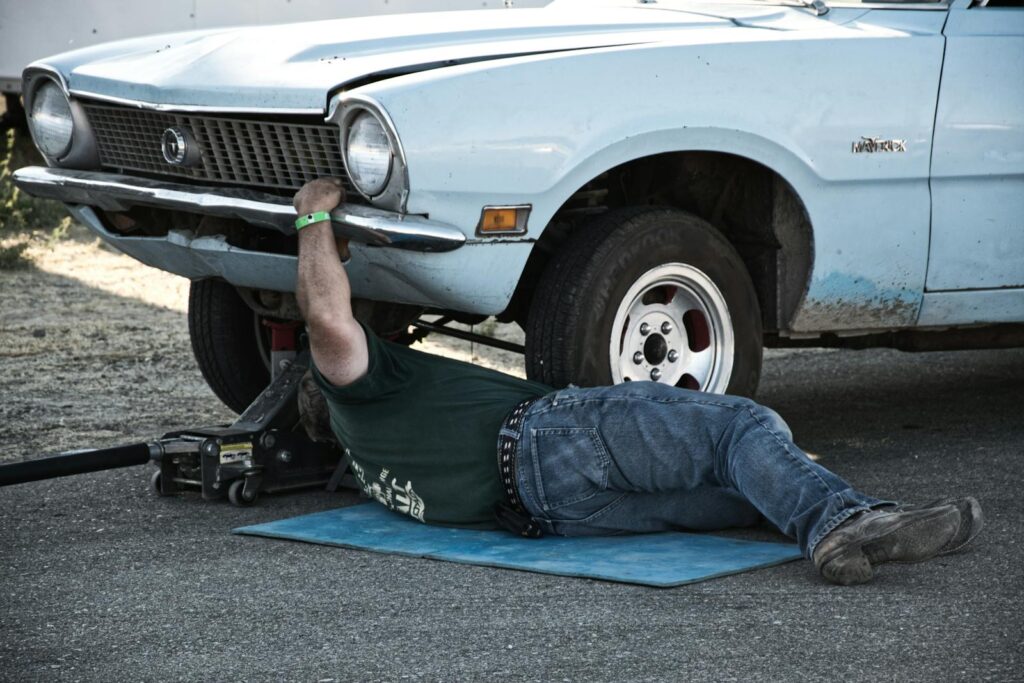
8. **Refusal to Return Old Parts**One of the most straightforward and telling indicators of a repair shop’s integrity is their willingness to return old parts that have been replaced during service. Reputable mechanics operate with complete transparency, and this includes offering customers the removed components as tangible proof that the work was indeed performed and the parts were genuinely replaced. A refusal to do so immediately raises serious questions about the honesty and accountability of the establishment.
When a shop is hesitant or outright refuses to give you the old parts back, it can suggest several unsettling possibilities. It might indicate that the part was never actually replaced, or perhaps a lower-quality, unauthorized component was used in its place. Without the physical evidence, it becomes impossible for you to verify the work, leaving you vulnerable to potential fraud or substandard repairs. This lack of transparency undermines the trust essential for a healthy customer-mechanic relationship.
Always make it a point to ask for your old parts back before any work commences on your vehicle. This simple request serves as a powerful deterrent against dishonest practices and ensures that you have the necessary proof to confirm the repairs. A trustworthy shop will not only comply with this request without hesitation but might even proactively show you the worn-out components to explain the necessity of the replacement. Insisting on this right is a fundamental step in safeguarding your interests.
Read more about: Behind the Glitz: 14 A-Listers Who Flat-Out Refused to Share the Screen (And What Went Down)

9. **Unnecessary Upselling**It’s common for mechanics to recommend additional services beyond your initial request, especially during routine maintenance checks. However, a significant red flag emerges when these recommendations escalate into aggressive or unnecessary upselling, where expensive repairs are pushed without clear, justifiable reasons. This can be a tactic to inflate the bill rather than genuinely address the vehicle’s needs, turning a simple visit into a budget-busting ordeal.
Consumers should be particularly cautious if they bring their car in for a minor service, like an oil change or tire rotation, and are suddenly presented with a lengthy list of urgent, costly repairs. While some additional issues might genuinely be discovered during inspection, a reputable shop will always provide clear explanations, photographic evidence if possible, and prioritize repairs based on safety and necessity, allowing you time to consider your options. They won’t pressure you into immediate, extensive work.
The key is discernment. Ask for detailed explanations for any suggested additional work and inquire about the immediate implications if the repair is deferred. A wise strategy is to obtain a second opinion, especially for major, unexpected repairs. This allows you to verify the diagnosis and necessity of the suggested services, preventing you from spending money on work that is not truly required or is prematurely recommended. Your proactive approach here can save you a significant amount.
Read more about: Don’t Get Scammed: 14 Car Services and Accessories That Are a Total Waste of Your Money
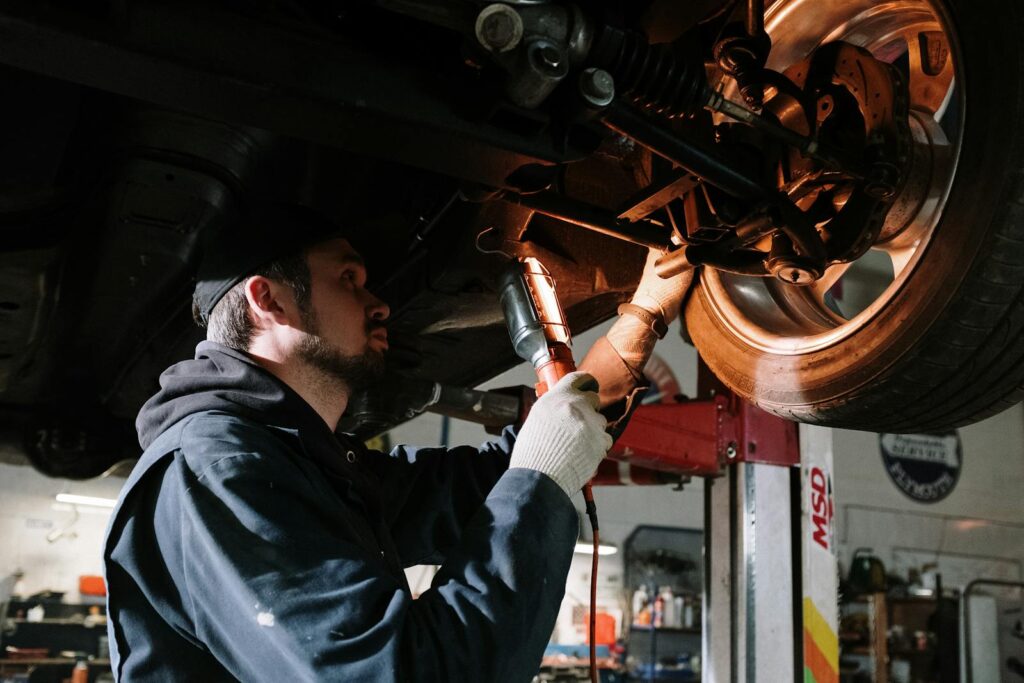
10. **Unauthorized Use of Your Vehicle**Your vehicle is a personal asset, and its unauthorized use by shop employees is not only a breach of trust but also a potentially serious issue. When you entrust your car to a repair shop, you grant them permission to operate it for diagnostic tests, road tests, and to move it within the premises for service. However, it should never be taken off the premises for personal errands or any other purpose without your explicit consent.
Discovering that your vehicle has been used for purposes unrelated to its repair, such as an employee running personal errands or commuting, is an undeniable red flag. This unauthorized activity can expose your car to unnecessary wear and tear, increase mileage, and potentially even put it at risk of accidents for which you might face insurance complications. It demonstrates a profound lack of respect for your property and a disregard for professional boundaries.
If you have reason to believe your car was used without authorization—perhaps you notice unexpected mileage on the odometer, or you spot your vehicle in an unusual location—you are fully within your rights to demand a thorough explanation. This situation warrants immediate action, and it is a clear indicator that you should seriously consider taking your business elsewhere. Trust and respect for customer property are cornerstones of any reputable repair service.
Read more about: Your Ultimate Checklist: 15 Essential Questions for a Smooth Family RV Trip Rental
Navigating the world of auto repair doesn’t have to be a gamble. By diligently recognizing and responding to these warning signs, from immediate pressure tactics to subtle feelings of unease, you equip yourself to avoid frustrating and costly experiences. A trustworthy repair shop will consistently provide clear estimates, employ certified technicians, communicate openly, maintain a clean workspace, offer warranties, and boast a positive reputation. Seek out establishments that prioritize your safety, budget, and peace of mind, demonstrating a genuine commitment to empowering you with knowledge and treating your vehicle with the care it deserves. By doing so, you can forge a valuable relationship with a trusted partner for all your auto care needs, securing the longevity and reliability of your ride.


